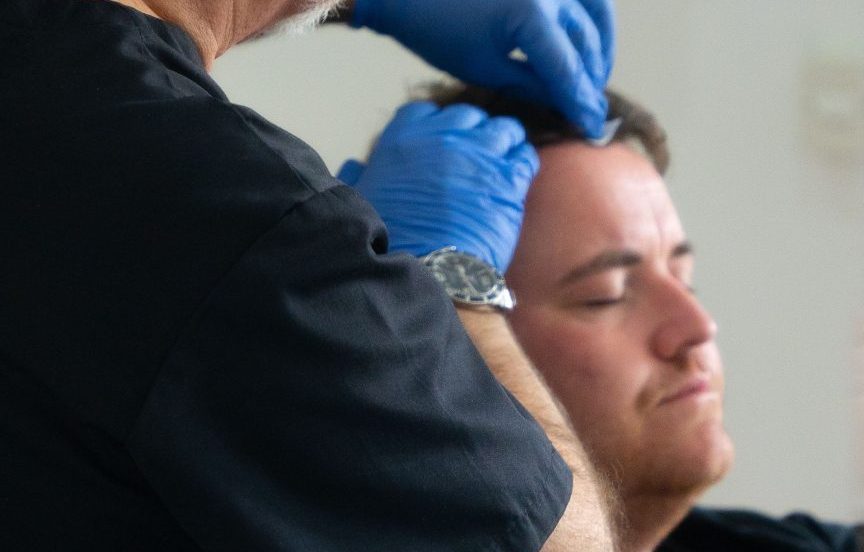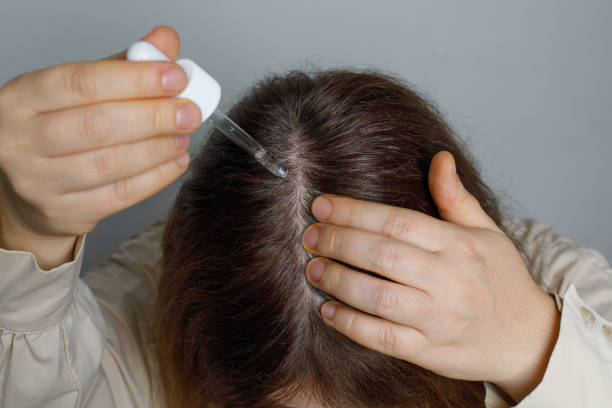
Hair Loss Solutions: Comparing Natural Remedies and Medical Treatments in a Complete Guide

Hair Loss Solutions: Comparing Natural Remedies and Medical Treatments in a Complete Guide
Hair Loss: Causes and Cures
Explore effective hair loss solutions by comparing natural remedies like rosemary oil and scalp massage with medical treatments such as minoxidil and finasteride. Find the best approach to restore your hair health.
FDA-Approved Medications
Finasteride (Propecia): A prescription pill for men that inhibits DHT production.
Non-Surgical Procedures
PRP (Platelet-Rich Plasma) injects your plasma into the scalp to stimulate hair growth. It’s minimally invasive and has promising results.
Surgical Hair Restoration
Follicular Unit Transplantation (FUT): A strip of scalp is removed to extract multiple follicles.
Regain Control: Navigating the Hair Loss Journey
Hair loss is a deeply personal and often distressing experience that affects millions of people across the UK and around the world. It can manifest in many forms—from a widening part line and thinning crown to a receding hairline or sudden shedding. While it’s commonly viewed as a cosmetic issue, Hair loss can deeply affect a person’s emotional well-being, leading to reduced confidence, anxiety, and even social withdrawal.
With so many options on the market today, the big question for those affected is this: Should you pursue natural remedies or opt for medical treatments? Both approaches have their merits, and each comes with its own set of benefits, limitations, and suitability depending on the individual’s specific needs. In this guide, we’ll look closer at the causes of hair loss and explore how natural and medical solutions stack up against each other so that you can make the best, most informed decision for your hair and your well-being.
Understanding Hair Loss
Hair loss is rarely just about hair. It can reflect deeper issues in the body or simply result from genetics. Gaining insight into the different causes and forms of hair loss is the first step toward choosing the most effective treatment.
What Causes Hair Loss?
Several popular different factors can contribute to hair loss:
- Genetics: Hereditary hair loss, commonly known as androgenetic alopecia, is the most common cause.
- Hormonal Changes: Pregnancy, menopause, or thyroid problems can trigger hair thinning.
- Stress: Hair growth cycles can be thrown off by both physical strain and emotional stress.
- Nutritional Deficiencies: A deficiency in key nutrients such as iron, zinc, or protein can lead to weaker hair.
- Medical Conditions: Conditions such as alopecia areata or long-term illnesses can lead to patchy hair loss
Types of Hair Loss
- Male and Female Pattern Baldness: The most known type, caused by genetics and hormones.
- Alopecia areata is a common disorder in which the immune system mistakenly harms the hair follicles, causing hair to fall out.
- Telogen Effluvium: Temporary hair shedding is often linked to stress, surgery, or illness.
- Traction Alopecia: Results from hairstyles that place excessive tension on the scalp.
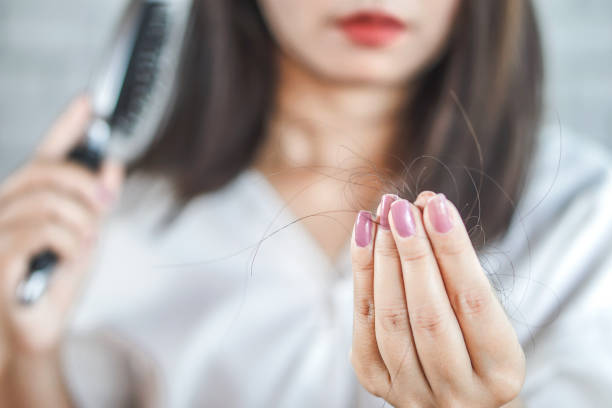


- 2,190 Grafts
- 12 Months Post Op
Signs and Symptoms to Watch For
- Noticeable thinning at the crown
- Widening the part line
- Receding hairline
- Excessive shedding during brushing or washing
Natural Remedies for Hair Loss
Natural remedies offer a gentler approach for those wary of side effects or long-term medication use. But do they work? Here’s what you need to know.
Herbal and Plant-Based Treatments
- Saw Palmetto: Believed to block DHT, a hormone linked to hair loss.
- Rosemary Oil: Encourages blood circulation to the scalp.
- Peppermint Oil: Has shown potential to stimulate hair growth in animal studies.
- Aloe Vera: Soothes the scalp and reduces dandruff.


- 2,190 Grafts
- 12 Months Post Op
Nutritional Support and Supplements
- Biotin: A type of B-vitamin recognised for supporting the strength of hair and nails.
- Vitamin D: A deficiency can be linked to alopecia.
- Zinc and Iron: Essential minerals for healthy hair follicles.
- Omega-3 Fatty Acids: Help reduce inflammation and nourish the scalp.

Lifestyle and Scalp Care
- Scalp Massage: Calms the scalp and helps minimise dandruff.
- Stress Reduction: Mindfulness, meditation, and regular exercise support hormonal balance.
- Gentle Hair Practices: Avoid excessive heat, tight hairstyles, and harsh chemicals.
- Balanced Diet: Protein-rich foods and hydration are key.
Effectiveness and Limitations
Natural remedies may be most effective in early-stage hair loss or when the cause is dietary or stress-related. However, they often require long-term consistency and may not yield results for more severe conditions.
Medical Treatments for Hair Loss
If you’re seeking more rapid or guaranteed results, medical treatments offer clinically tested options. Let’s explore the most common interventions.
FDA-Approved Medications
Medical Treatments That Target Hair Loss
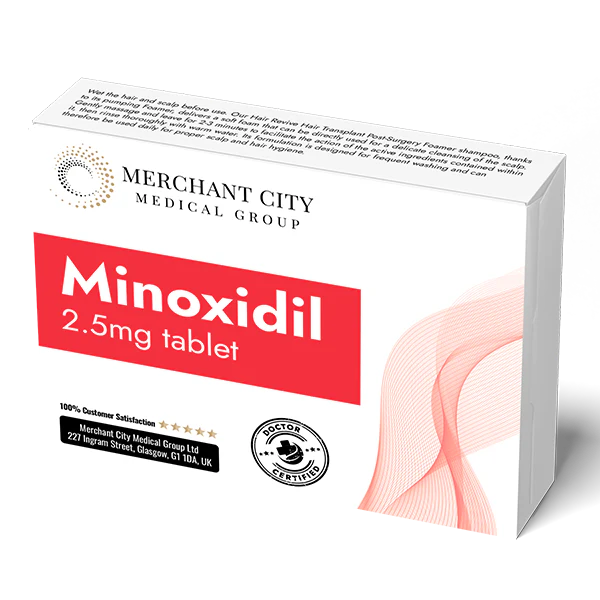
- Minoxidil (Rogaine): A topical treatment available over the counter. It improves blood flow to the hair follicles and prolongs the growth phase.
- Finasteride (Propecia): A prescription pill for men that inhibits DHT production. It’s shown to slow hair loss and promote regrowth significantly.
Non-Surgical Procedures
Hormonal Triggers of Hair Loss in Young Men
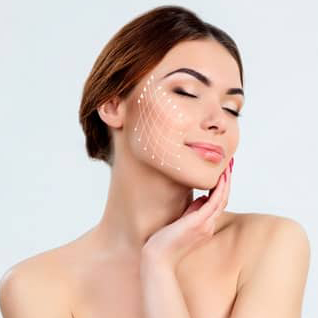
- PRP (Platelet-Rich Plasma) injects your plasma into the scalp to stimulate hair growth. It’s minimally invasive and has promising results.
- Low-Level Laser Therapy (LLLT): Uses red light to reduce inflammation and promote circulation.
- Microneedling: Tiny needles create micro-injuries in the scalp, boosting collagen and hair regrowth.
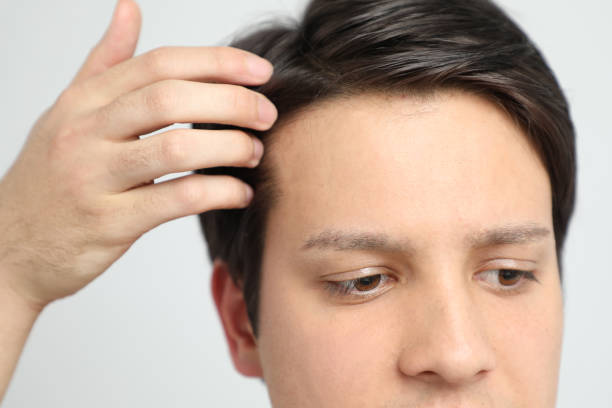
Surgical Hair Restoration
FUE vs. FUT: Surgical Hair Restoration
- Folicular Unit Extraction (FUE): Individual hair follicles are harvested from a donor area and implanted in thinning zones. This method leaves minimal scarring and provides a natural look.
- Follicular Unit Transplantation (FUT): A strip of scalp is removed to extract multiple follicles. It can be more effective for advanced hair loss, but leaves a linear scar.
Benefits and Risks of Medical Interventions
Medical Treatments: Pros and Cons

- Benefits: Faster and more visible results, particularly for moderate to severe hair loss. Strong clinical data support most options.
- Risks: Potential side effects, such as scalp irritation, lowered libido (with finasteride), or minor surgical complications.
Comparing Natural Remedies vs. Medical Treatments
With so many options available, it’s essential to weigh the pros and cons of each route. Here’s a closer comparison.
Cost Comparison
- Natural Remedies: Generally low-cost, though supplements and essential oils can add up over time.
- Medical Treatments Can be expensive, especially procedures like FUE or PRP. However, some medications are affordable, and a long-term investment may justify the cost.

Speed and Visibility of Results
- Natural: Gradual improvements, often over 3-6 months or more.
- Medical: Noticeable changes can occur within 3 months, with significant regrowth after 6-12 months, depending on the treatment.

Safety and Side Effects
- Natural: Fewer side effects, but may be ineffective for severe cases.
- Medical: Greater efficacy but also greater risk of side effects or complications.
Suitability Based on Hair Loss Type and Severity
- Natural: Best for early-stage or mild hair thinning and those seeking preventive care.
- Medical: Necessary for moderate to advanced hair loss, particularly genetic types.
Combining Both Approaches: Is It Possible?
Absolutely. Many specialists now recommend a holistic approach—using medication or procedures alongside a healthy lifestyle, supplements, and topical treatments to enhance results and improve long-term hair health.
Hair Loss Solutions: What’s Right for You?
Every head of hair—and every person—is different, so choosing the best solution requires a personalised approach.
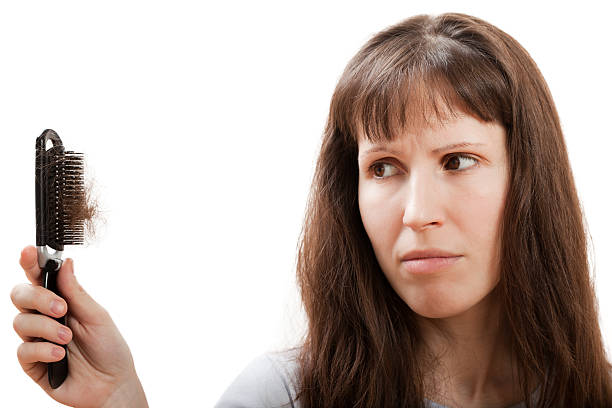
Factors to Consider
- Age and Gender: Some treatments work better for specific demographics.
- Health Background: Pre-existing conditions can affect your treatment eligibility.
- Budget and Time Commitment: Medical treatments often require both.
The Role of Professional Consultation
You should never start a treatment without a proper diagnosis. Consulting a hair loss specialist or trichologist ensures:
- Accurate identification of the type and cause of hair loss
- Scalp analysis and potentially blood tests
- A treatment plan tailored to your specific needs
Why Choose Merchant City Medical Group for Hair Loss Treatment?
Choosing the right clinic can make all the difference in advanced hair restoration.
Merchant City Medical Group stands out as a trusted name in the UK.
- Expertise in FUE Hair Transplants
Our clinic specialises in Follicular Unit Extraction (FUE), a minimally invasive procedure known for its natural-looking results and short recovery time. With experienced surgeons and medical professionals, you’re in safe hands.
Comprehensive Hair Restoration Services
We offer more than just transplants. Our services include:- In-depth hair consultations
- PRP therapy
- Scalp assessments and laser therapy
- Medication management
- Personalised Treatment Plans
No two scalps are the same. We customise each treatment based on gender, hair type, lifestyle, and degree of hair loss, giving you the best chance at success. - Trusted by Patients Across the UK
Our clients speak for us. We’ve helped hundreds regain their hair and confidence from Glasgow to London. Our before-and-after gallery and patient testimonials tell powerful stories.
- Book a Free Consultation Today
Don’t let uncertainty delay your progress. Contact Merchant City Medical Group today for a free consultation and begin your journey to thicker, healthier hair.
Final Thoughts
Hair loss may feel overwhelming, but it’s not a battle you must fight alone. Whether you prefer the holistic path of natural remedies or the faster, more measurable outcomes of medical treatments, the key is to take action early.
With a better understanding of your options and support from professionals like the Merchant City Medical Group team, regaining your hair and confidence is entirely within reach.
Excellence Record
- 30+ Years of combined experience
- 10 + Experts
- 1000 + Satisfied Patients





